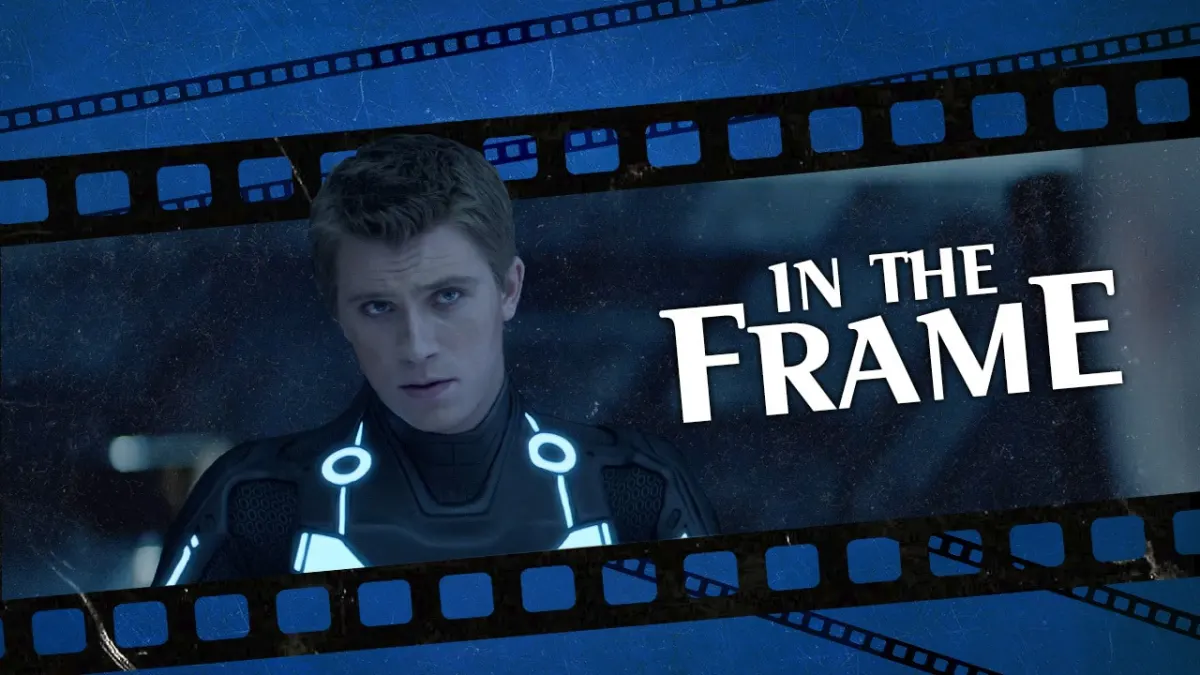This week, it was announced that Disney is looking at producing a new Tron film, with director Gareth Davis and star Jared Leto. Given the underwhelming box office performance of both the original Tron and its long-delayed sequel Tron: Legacy, this seems like a reckless gamble from a studio that tends to be more financially conservative. After all, Disney is in a very different place in 2020 than it was when Tron: Legacy was released in 2010.
In 2010, Disney was aggressively courting a young male audience. The studio was still best known for its animation division, considered a home to talking animal and princess movies. While the company had a strong brand with young girls, it was struggling to connect with boys. In March 2010, it was reported that Disney was restyling its planned animated Rapunzel film to appeal to male audiences. The film would be released as Tangled in November 2010, a month before Tron: Legacy.
Disney would compensate for this perceived market weakness. It had purchased Marvel Entertainment in August 2009, although the first Marvel Studios film that it would distribute would be The Avengers in May 2012. Disney would buy Lucasfilm in October 2012 but would not release a new Star Wars movie until The Force Awakens in December 2015. These franchises are now a cornerstone of the Disney brand, but it is interesting to look at what preceded them.
Before purchasing these brands, Disney attempted to court young male viewers with big blockbusters based on pulp properties. The studio had scored a massive hit with its Pirates of the Caribbean franchise, and that seemed to be a model for a chain of live-action blockbusters drawing from existing intellectual property: Tron: Legacy in December 2010, John Carter in March 2012, The Lone Ranger in July 2013, Tomorrowland in May 2015. These movies all underperformed.

Their failures pushed Disney towards a safe mode of production and distribution, which favored surefire bets over even low-risk gambles. They became indicative of the kind of movies that Disney didn’t want to make. In hindsight, it’s possible to see the films as mapping a Star Wars-shaped hole in the studio’s output: the mystical father-son issues in Tron: Legacy, John Carter as derived from one of the inspirations of Star Wars, even the pulpy throwback stylings of The Lone Ranger.
Still, of this brief flurry of misbegotten Disney blockbusters, Tron: Legacy stands out. Although it was not a smash hit, it performed the best of that group by a comfortable margin, and there were long whispers of a possible sequel. If Disney is going to roll the dice on resurrecting one of these properties, Tron is the safest bet. At the same time, watched with the benefit of hindsight, Tron: Legacy offers an interesting glimpse of a studio trying to build a blockbuster for young male viewers.
There is a lot of Tron: Legacy that feels cobbled together from other popular blockbusters. It is possible, for example, to contextualize the tension between Sam Flynn (Garrett Hedlund) and his father Kevin (Jeff Bridges) as an archetypal Star Wars dynamic. This comparison is only deepened by the movie’s emphasis on the idea of a desperate rebellion against an oppressive authority and the vaguely eastern mysticism of Kevin Flynn’s “whole Zen thing.”
It’s also possible to see the influence of Christopher Nolan’s The Dark Knight on the sequences set in the real world. Although shot in Vancouver, the yellow-tinted urban late-night landscapes evoke the use of Chicago in Batman Begins and The Dark Knight, as does the casting of Cillian Murphy in what is transparently a sequel hook. The opening sequence climaxes with Sam climbing atop a crane to look out over the city, recalling Nolan’s establishing shots of the Caped Crusader.

However, what is most interesting about Tron: Legacy as part of this attempt to lure young male viewers to the multiplex is that it also feels like a canny effort on the part of Disney to transpose a storytelling model that has worked rather well in animation into live action. The basic plot structure of Tron: Legacy feels like an attempt to build a live-action adventure around the familiar narrative template of the studio’s animated output. Tron: Legacy is a Disney princess movie, but for boys.
It’s worth noting that something quietly revolutionary was happening with the studio’s animated films at the same time that it was struggling with these blockbusters. The Princess and the Frog had been released in December 2009 and would be the studio’s last traditionally animated princess movie. The new decade would bring a new form of financially lucrative and critically successful computer-animated princess movies: Tangled, Frozen, and Moana.
More to the point, the studio was realizing the appeal of transitioning that intellectual property into live action. Tim Burton’s live-action adaptation of Alice in Wonderland had been released in March 2010 and would become the second-highest grossing movie of the year. It would inspire a wave of live-action reimaginings of classic Disney properties of varying quality: Cinderella, Pete’s Dragon, Beauty and the Beast, The Lion King. It was clear that there was life in this old template yet.
Tron: Legacy often feels like an effort to bridge the gap between this transition in the classic princess movie template and the studio’s efforts to produce male-skewing blockbusters. The film frames Sam as something close to dispossessed royalty journeying to his father’s kingdom to find it in ruins. Seen in the distance, as Quorra (Olivia Wilde) drives through the wasteland, the citadel does not look too different from the digitized Disney castle seen in the logo at the start.

Perhaps by coincidence, Tron: Legacy opens in 1989. This was the year that The Little Mermaid was released, starting the Disney Renaissance. Sam’s sense of wonder at being immersed in the digital world occasionally feels like the reaction of Ariel (Jodi Benson) at being exposed to life on dry land. Like with Ariel, Sam’s naivety is exploited by sinister forces trying to capture his father in the same way Ursula (Pat Carroll) uses Ariel to trap King Triton (Kenneth Mars).
One of the issues with Tron: Legacy is Sam’s passivity as a protagonist and the blandness of Garrett Hedlund as a lead actor. Quorra is more dynamic, getting a lot of the film’s best action beats. When Quorra takes Sam “off-grid,” the emphasis is on Sam’s wonder and awe. He’s filmed like Kim Bassinger in Batman or Katie Holmes in Batman Begins, riding into mystery in the Batmobile. This recalls the passivity of older Disney princesses in films like Cinderella or Sleeping Beauty.
Indeed, the basic plot of Tron: Legacy reflects perhaps the most beloved gender-flipped Disney princess story: The Lion King. In The Lion King, the just ruler Mufasa (James Earl Jones) is supplanted by the cruel and jealous tyrant Scar (Jeremy Irons), but the maneuverings of the royal court are ultimately framed as intimate familial drama. Tron: Legacy does something similar with Sam’s efforts to reconnect with his father and to confront the flawed program that betrayed him.
Tron: Legacy uses the language of an epic, describing Clu’s “coup” and the ensuing “genocide,” but it is ultimately the story of familial reconciliation. The mythology of the world of Tron is never as fleshed out or developed as the mechanics of the Star Wars universe or the Marvel Cinematic Universe, instead unfolding in a space that seems more fantastical than rational. Kevin pulls a bug from Quorra’s code and it… flies away. “Check that out,” he remarks. It’s all “bio-digital jazz.”

Like the studio’s animated films, Tron: Legacy is more comfortable using its visuals to tell its story. Clu’s monstrous aspirations are not dwelled upon in exposition, but articulated in iconography. At one point, Sam and Kevin find train cars packed with programs to be repurposed, evoking the imagery of the Holocaust. Clu’s climactic speech to his army of followers is an overt homage to The Triumph of the Will. It is unsettling, and very deliberately so.
Disney’s live-action films have tended to be wary of such charged imagery. The character of General Hux (Domhnall Gleeson) was introduced as a modern-day Nazi in The Force Awakens and The Last Jedi, but promptly killed off and replaced by a more generic antagonist in The Rise of Skywalker. The Marvel Cinematic Universe has spent a lot of time and energy to detach the villainous Red Skull (Hugo Weaving, Ross Marquand) from his roots as a literal Nazi.
In contrast, Disney’s animated films have always felt more comfortable with that imagery – perhaps reflecting the importance of the Second World War to the survival of the animation studio following the failure of Pinocchio and Fantasia. The Lion King evoked The Triumph of the Will during the musical number “Be Prepared,” while the otherwise overly faithful computer-generated remake chose to omit the sequence. The studio’s last film to feel comfortable employing such imagery was arguably Maleficent: Mistress of Evil, which spun out of a loose remake of Sleeping Beauty.
As a result of all of this, Tron: Legacy feels much closer to Disney’s classic animated output than a lot of its live-action blockbusters. It is arguably a more convincing attempt to translate its tropes and conventions to a different medium than the remakes of The Lion King or Beauty and the Beast. Disney would ultimately adopt a different approach to courting the young male audience that it wanted, but Tron: Legacy remains a fascinating snapshot of a strange genre fusion.





